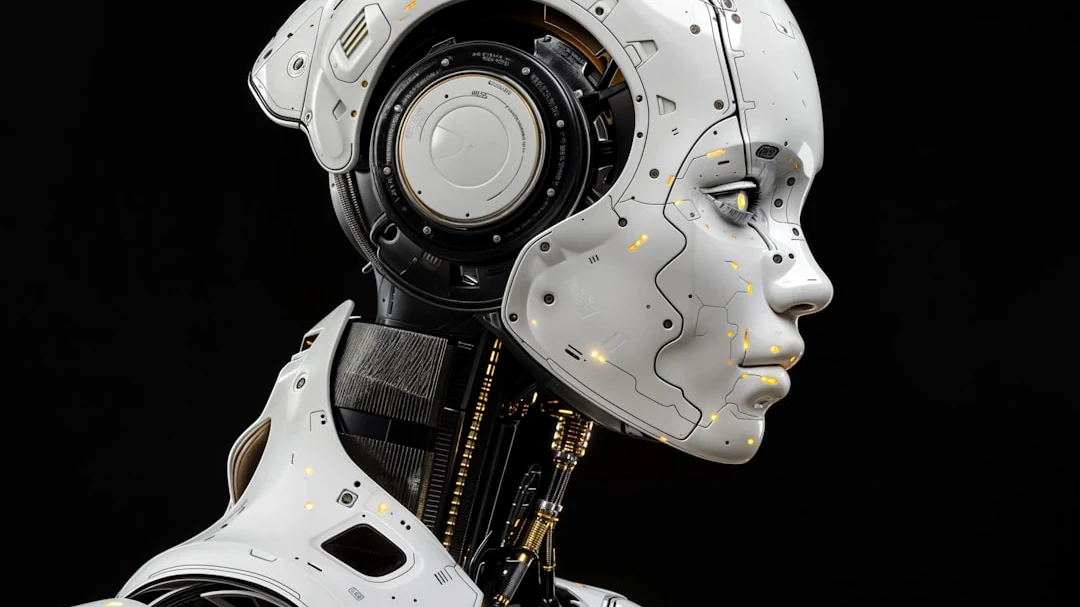The Psychology Behind Making Artificial Intelligence More Relatable
Have you ever thanked Alexa for playing your favorite song? Or felt genuinely disappointed when your GPS took you on a longer route? If so, you’re not alone. A recent study found that 83% of people have experienced emotional connections with AI assistants, treating them more like companions than tools. This fascinating phenomenon reveals something profound about human psychology and our innate need to connect—even with machines.
As artificial intelligence becomes increasingly integrated into our daily lives, understanding the psychological principles that make AI relatable isn’t just academically interesting—it’s essential for creating technology that truly serves human needs. From virtual assistants to chatbots, the most successful AI applications are those that feel less like cold algorithms and more like helpful companions.
The Human Need for Connection: Why We Anthropomorphize AI
At the heart of making AI relatable lies a fundamental human tendency: anthropomorphism. This is our natural inclination to attribute human characteristics, emotions, and intentions to non-human entities. It’s the same psychological mechanism that makes us see faces in clouds or feel sorry for a robot vacuum bumping into furniture.
Dr. Susan Greenfield, a neuroscientist at Oxford University, explains that our brains are hardwired for social connection. When we interact with AI that exhibits even subtle human-like qualities, our social cognition systems activate automatically. We can’t help but treat these systems as social entities, even when we logically know they’re machines.
The Evolutionary Advantage
This tendency isn’t a bug in human psychology—it’s a feature. Throughout evolution, being able to quickly identify and connect with other humans provided significant survival advantages. Our ancestors who could form strong social bonds were more likely to survive and reproduce. Today, this same mechanism makes us naturally inclined to humanize AI, especially when it communicates in natural language or responds to our emotions.
Key Psychological Principles in AI Design
Understanding which psychological principles make AI more relatable can help developers create more engaging and effective systems. Here are the most important factors:
1. The Uncanny Valley Effect
First identified by robotics professor Masahiro Mori in 1970, the uncanny valley describes the unsettling feeling we get when something appears almost, but not quite, human. This principle is crucial in AI design—systems that are clearly artificial but have some human-like qualities often feel more comfortable than those trying too hard to be human.
2. Consistency and Predictability
Humans form relationships based on predictable patterns of behavior. When AI systems maintain consistent personalities and response styles, users develop a sense of familiarity and trust. This is why many successful AI assistants have distinct, unchanging personalities rather than adapting too dramatically to different users.
3. Reciprocity and Turn-Taking
Conversation is fundamentally about give and take. AI that acknowledges user input, asks clarifying questions, and demonstrates active listening feels more relatable than systems that simply process commands. This reciprocal interaction mimics human conversation patterns and activates our social engagement systems.
Common Misconceptions About Relatable AI
Despite growing awareness of AI psychology, several myths persist about what makes artificial intelligence relatable:
- Myth: More human-like always means more relatable. Reality: Sometimes, clearly artificial AI with consistent, helpful behavior is more trusted than hyper-realistic systems.
- Myth: Emotions in AI are just programming tricks. Reality: While AI doesn’t feel emotions, emotional expressions serve important communication functions that enhance user experience.
- Myth: People who connect with AI are lonely or socially isolated. Reality: Research shows that people from all social backgrounds form connections with AI, reflecting normal human social cognition.
- Myth: Making AI relatable is manipulative. Reality: When done ethically, relatable AI design simply makes technology more accessible and user-friendly.
Practical Strategies for Creating Relatable AI
For developers and designers looking to create more relatable AI experiences, here are evidence-based strategies that work:
- Use Natural Language Patterns: Incorporate conversational fillers like “um” or “let me think” to make responses feel more natural and less robotic.
- Implement Emotional Intelligence: Program AI to recognize and respond appropriately to user emotions, even with simple acknowledgments like “I understand this might be frustrating.”
- Create Consistent Personalities: Develop a clear personality profile for your AI and maintain it across all interactions.
- Add Contextual Awareness: AI that remembers previous conversations and references past interactions feels more like a continuous relationship.
- Include Appropriate Humor: Carefully crafted, situational humor can make AI feel more personable without crossing professional boundaries.
The Future of Human-AI Relationships
As we look ahead, the psychology of human-AI interaction will only become more important. Emerging trends suggest that future AI systems will incorporate even more sophisticated psychological principles:
Adaptive Personality Models: AI that subtly adjusts its communication style based on user preferences while maintaining core consistency.
Multi-Modal Emotional Expression: Systems that combine voice, text, and visual elements to create richer emotional communication.
Cultural Sensitivity: AI that understands and respects cultural differences in communication styles and social norms.
Ethical Transparency: Clear indicators when users are interacting with AI, preventing deceptive practices while maintaining relatability.
Key Takeaways
The psychology behind making AI relatable reveals fascinating insights about human nature and our capacity for connection. As we’ve explored, successful relatable AI leverages fundamental psychological principles like anthropomorphism, consistency, and reciprocity to create meaningful user experiences.
Understanding these principles isn’t just academic—it’s practical knowledge that can improve how we design, implement, and interact with AI systems. Whether you’re a developer creating the next generation of AI assistants or simply a user trying to understand your own reactions to technology, recognizing these psychological factors empowers better human-AI relationships.
As artificial intelligence continues to evolve, the most successful systems won’t necessarily be the most advanced—they’ll be the ones that best understand and respond to human psychological needs. By embracing the science of relatability, we can create AI that doesn’t just perform tasks but genuinely enhances human experience in meaningful ways.
